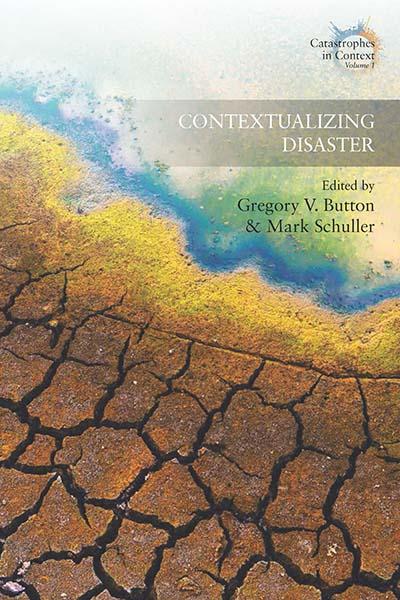Button, Gregory, and Mark Schuller, eds. Contextualizing Disaster. New York: Berghahn Books, 2016.
Contextualizing Disaster offers a comparative analysis of six recent “highly visible” disasters and several slow-burning, “hidden,” crises that include typhoons, tsunamis, earthquakes, chemical spills, and the unfolding consequences of rising seas and climate change. The book argues that, while disasters are increasingly represented by the media as unique, exceptional, newsworthy events, it is a mistake to think of disasters as isolated or discrete occurrences. Rather, building on insights developed by political ecologists, this book makes a compelling argument for understanding disasters as transnational and global phenomena. (Text from Berghahn Books)
The Catastrophes in Context series aims to bring critical attention to the social, political, economic, and cultural structures that create disasters out of natural hazards or political events and that shape the responses. Its goal is to publish readable, lucid texts to be accessible to a wide range of audiences across academic disciplines and specifically practitioners and policymakers.


